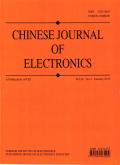Expression Complementary Disentanglement Network for Facial Expression Recognition
IF 1.6
4区 计算机科学
Q3 ENGINEERING, ELECTRICAL & ELECTRONIC
引用次数: 0
Abstract
Disentangling facial expressions from other disturbing facial attributes in face images is an essential topic for facial expression recognition. Previous methods only care about facial expression disentanglement (FED) itself, ignoring the negative effects of other facial attributes. Due to the annotations on limited facial attributes, it is difficult for existing FED solutions to disentangle all disturbance from the input face. To solve this issue, we propose an expression complementary disentanglement network (ECDNet). ECDNet proposes to finish the FED task during a face reconstruction process, so as to address all facial attributes during disentanglement. Different from traditional re-construction models, ECDNet reconstructs face images by progressively generating and combining facial appearance and matching geometry. It designs the expression incentive (EIE) and expression inhibition (EIN) mechanisms, inducing the model to characterize the disentangled expression and complementary parts precisely. Facial geometry and appearance, generated in the reconstructed process, are dealt with to represent facial expressions and complementary parts, respectively. The combination of distinctive reconstruction model, EIE, and EIN mechanisms ensures the completeness and exactness of the FED task. Experimental results on RAF-DB, AffectNet, and CAER-S datasets have proven the effectiveness and superiority of ECDNet.用于面部表情识别的表情互补解缠网络
将人脸图像中的面部表情从其他干扰面部属性中分离出来是面部表情识别的一个重要课题。以往的方法只关注面部表情分离(FED)本身,而忽略了其他面部属性的负面影响。由于注释的面部属性有限,现有的 FED 解决方案很难将所有干扰从输入面部中分离出来。为了解决这个问题,我们提出了一种表情互补纠错网络(ECDNet)。ECDNet 提议在人脸重建过程中完成 FED 任务,以便在解缠过程中处理所有面部属性。与传统的重建模型不同,ECDNet 通过逐步生成和组合面部外观和匹配几何图形来重建人脸图像。它设计了表情激励(EIE)和表情抑制(EIN)机制,诱导模型精确表征分解后的表情和互补部分。在重建过程中产生的面部几何和外观分别用来表示面部表情和互补部分。独特的重建模型、EIE 和 EIN 机制的结合确保了 FED 任务的完整性和精确性。在 RAF-DB、AffectNet 和 CAER-S 数据集上的实验结果证明了 ECDNet 的有效性和优越性。
本文章由计算机程序翻译,如有差异,请以英文原文为准。
求助全文
约1分钟内获得全文
求助全文
来源期刊

Chinese Journal of Electronics
工程技术-工程:电子与电气
CiteScore
3.70
自引率
16.70%
发文量
342
审稿时长
12.0 months
期刊介绍:
CJE focuses on the emerging fields of electronics, publishing innovative and transformative research papers. Most of the papers published in CJE are from universities and research institutes, presenting their innovative research results. Both theoretical and practical contributions are encouraged, and original research papers reporting novel solutions to the hot topics in electronics are strongly recommended.
 求助内容:
求助内容: 应助结果提醒方式:
应助结果提醒方式:


